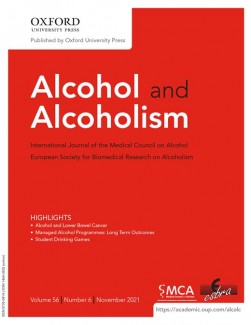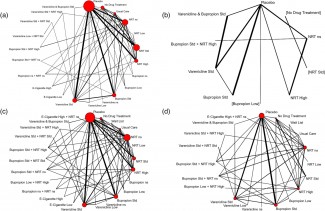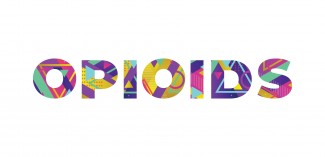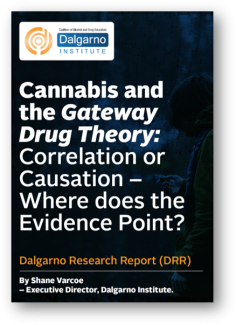Search
New Trends in Education and Training Programs in Addictions at the Higher Education and University Levels
BACKGROUND
A broad range of professionals, training opportunities, and regional differences exist in the addiction study field worldwide. This educational variety poses a challenge in proposing a precise classification of study programs at...
The Master’s in Drug Dependence at the University of Barcelona: Historical Perspective and Future Challenges
BACKGROUND
The two-year, multidisciplinary Master’s in Drug Dependence (MDD) at the University of Barcelona was created in 1986, after some years of offering shorter seminars. It was a response to the heroin crisis of the 80s and 90s and...
Alcohol Consumption from a Social and Economic Perspective: A Review Study
BACKGROUND
Alcohol abuse and addiction are a widespread problem that leads to a serious collision and pose a serious threat to individuals as well as to society as a whole. In addition to the health aspect of alcohol consumption, social...
Comprehensive Evaluation of the Online Lifelong Education Course Prevention and Treatment of Substance Use Disorders for Physicians in the Czech Republic: Study Protocol
BACKGROUND
The course Prevention of Harmful Substance Use and Addiction Treatment is an integral and mandatory part of postgraduate medical education in the Czech Republic. Its aim is to acquire the necessary knowledge, skills and...
Normalisation Process Theory
Theories are important tools in the health and social science world. However, it is important to consider how they are formed and how they inform everyday practice.
In this paper, the authors discuss the Normalisation Process Theory...
Perspectives of healthcare providers, service users, and family members about mental illness stigma in primary care settings: A multi-site qualitative study of seven countries in Africa, Asia, and Europe
Stigma among healthcare providers is a barrier to the effective delivery of mental health services in primary care. Few studies have been conducted in primary care settings comparing the attitudes of healthcare providers and experiences of...
Strategies Adopted by Addiction Facilities during the Coronavirus Pandemic to Support Treatment for Individuals in Recovery or Struggling with a Substance Use Disorder: A Scoping Review
Smoking and drinking- Selected articles from the journal of alcohol and alcoholism
The featured articles investigate the association of smoking products and alcohol consumption, identify causes and influences, and explore therapeutic avenues and cessation interventions.
Free to access until 31 January!
Articles
- Tar...
Study: Combined treatments are the most effective to stop smoking
This is a study, led by the University of Bristol, and published in Addiction Journal. It was funded by the National Institute for Health Research (NIHR), the research partner of the NHS, public health and social care.
The most effective...
Impact of the COVID-19 Pandemic on Behaviour and Preference Changes in Relation to Selected Anabolic Androgenic Substances and Steroids: A Research Study
BACKGROUND: In December 2019, a severe acute respiratory syndrome caused by coronavirus 2 (SARS- CoV-2 or COVID-19) broke out in China. The virus spread rapidly throughout the country and around the globe. In an effort to prevent the spread...
Biographic Burden and Initiation into the Use of Amphetamine-Type Stimulants from the Perspective of Users: The Qualitative Arm of the ATTUNE Research Study in the Czech Republic
BACKGROUND: The Czech Republic has a long tradition of methamphetamine use. Less is known about the circumstances of initiation into its use at the level of individual users. The aim of the research was to analyse the biographic burden...
Trends in healthcare expenditures and resource utilization among a nationally representative population with opioids in the United States: a serial cross-sectional study, 2008 to 2017
One of the most serious public health concerns in recent decades has been the opioid epidemic in the United States (US). Over 9.9 million Americans aged 12 and up abused prescription pain drugs in 2018, and roughly 2 million Americans were...
Cannabis and the Gateway Drug Theory: Correlation or Causation – Where does the Evidence Point?
Cannabis and the Gateway Drug Theory: Correlation or Causation – Where does the Evidence Point? (Dalgarno Institute Research Report, October 2021)
This Research Report looks a the ever oscillating debate around Cannabis and the 'Gateway...
Impact of an adult family member’s problematic substance use on family life
Problematic substance use can be a significant cause of stress for family members of the person using substances. This review, published in the journal Drug: Education, Prevention and Policy, examines current research in order to explore...
Assessing the Prevalence of Fetal Alcohol Spectrum Disorder (FASD) in the UK
In a new study, led by a team at the University of Salford, evidence has been found to suggest fetal alcohol spectrum disorder (FASD) is a significant issue among the population, likely to be as common as autism, despite being rarely...
Are former heavy drinkers in the UK less likely to identify as being in recovery compared to those in the USA? A pilot test
The Alcoholics Anonymous (AA) movement created the term "in recovery" to express the continuing requirement for vigilance in order to sustain sobriety (which includes abstinence from alcohol intake) and avoid a return to dangerous drinking...
Research led by people who use drugs: centering the expertise of lived experience
Despite a long history of successful, community-led harm reduction programs and rising health inequalities suffered by PWUD, research collaborations between PWUD and researchers remain generally ignored. PWUDs are crucial in identifying...
Psychosocial Interventions to Improve Psychological, Social and Physical Wellbeing in Family Members Affected by an Adult Relative’s Substance Use: A Systematic Search and Review of the Evidence
The use of alcohol and drugs is a significant public health concern and is prevalent in families. Over 100 million people are thought to be affected by a close relative's substance use, with many experiencing negative health and social...
Cannabis tourist destinations: Risk for vulnerable travellers with pre-existing mental disorders
Share the Knowledge: ISSUP members can post in the Knowledge Share – Sign in or become a member




